National Endowment for the Arts Announces First Round of Fiscal Year 2023 Grants
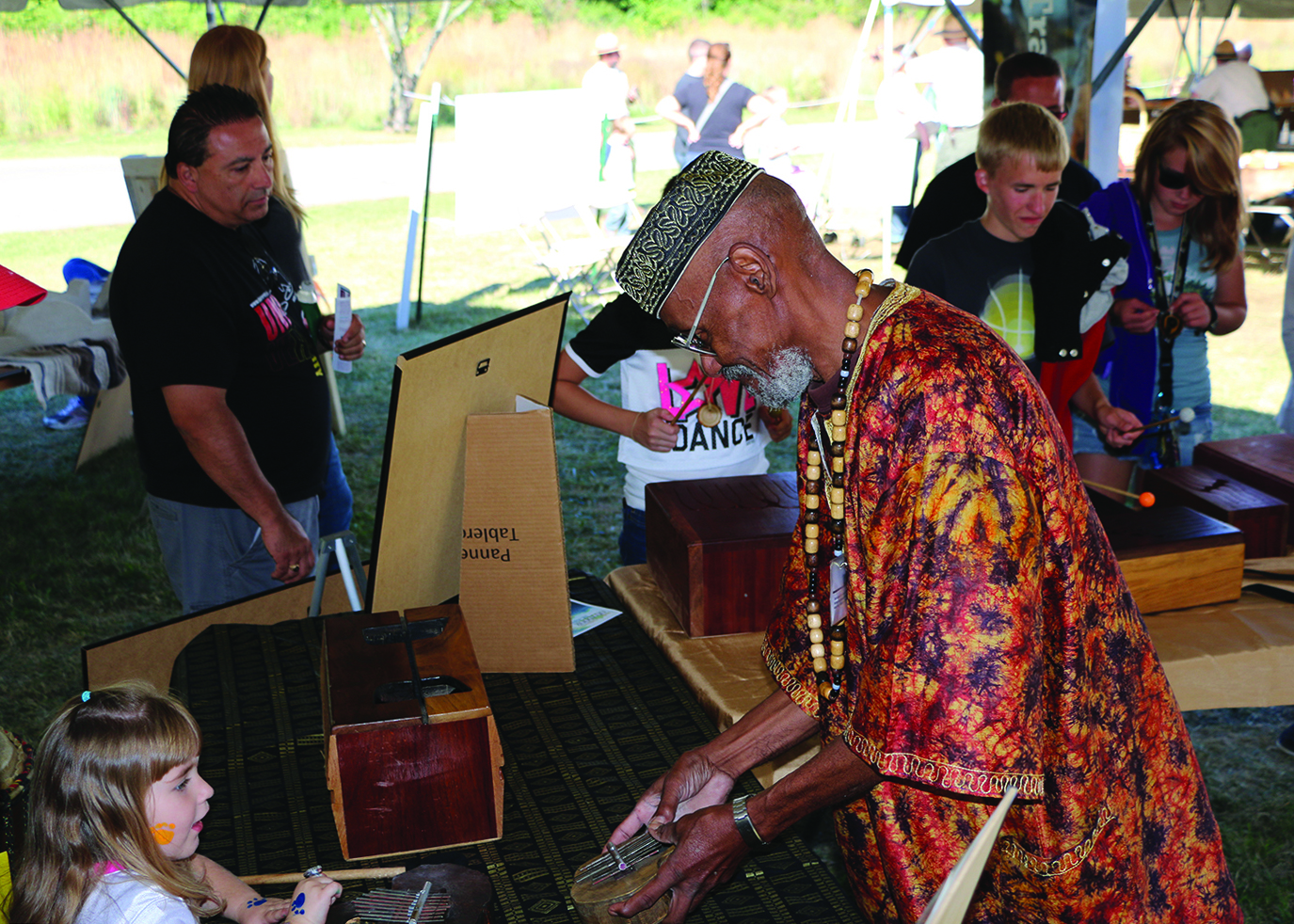
Roy Spight demonstrates African American drum making at Fort Benjamin Harrison State Park. An NEA grant to Trustees of Indiana University in Bloomington on behalf of Traditional Arts Indiana will support folk arts programs focused on serving older adults. Photo courtesy of Traditional Arts Indiana
National Endowment for the Arts Announces Ascala Tsegaye Sisk as Senior Deputy Chair
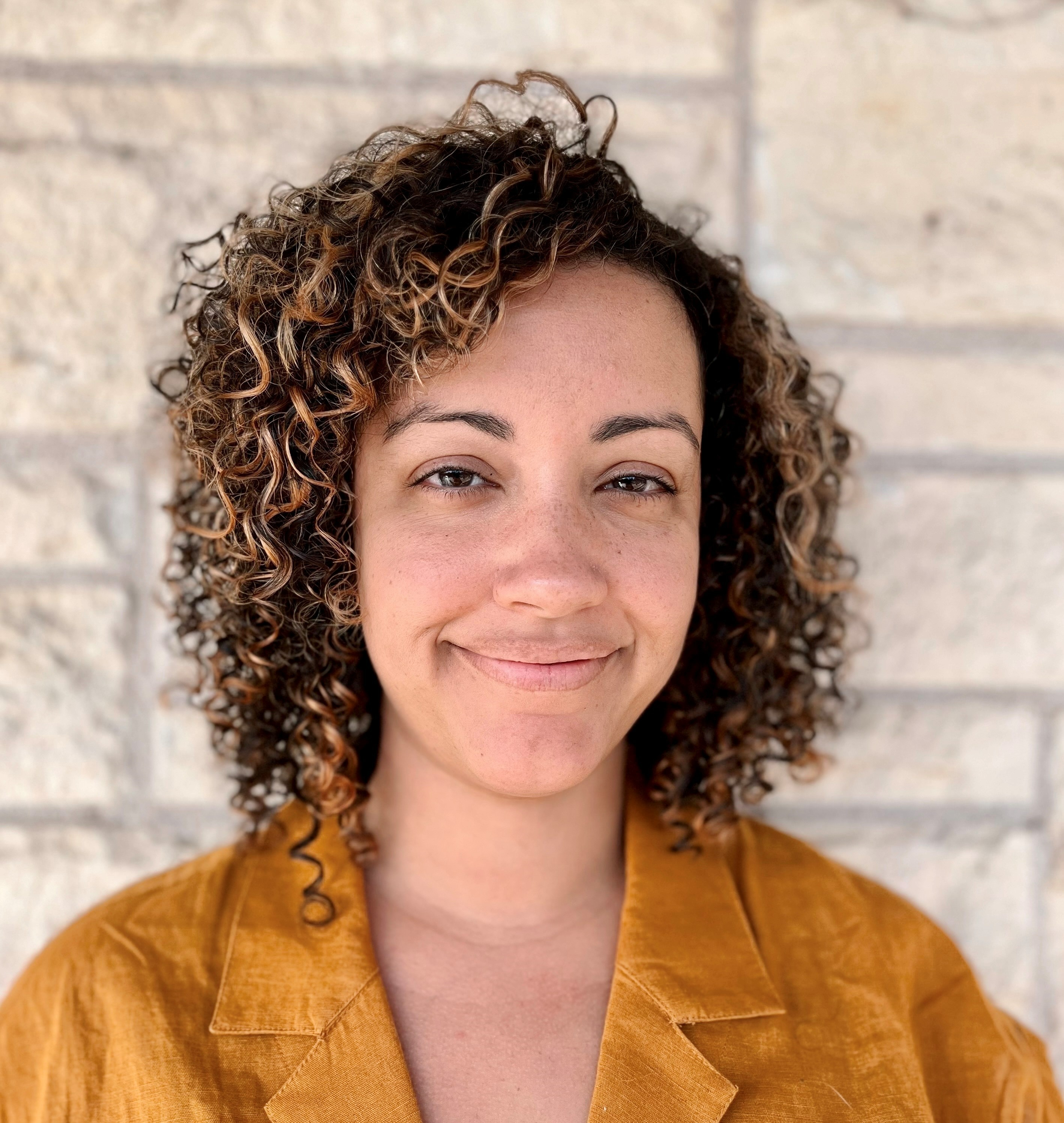
Brionne Janae

Photo by Amelia Golden
Ostap Kin
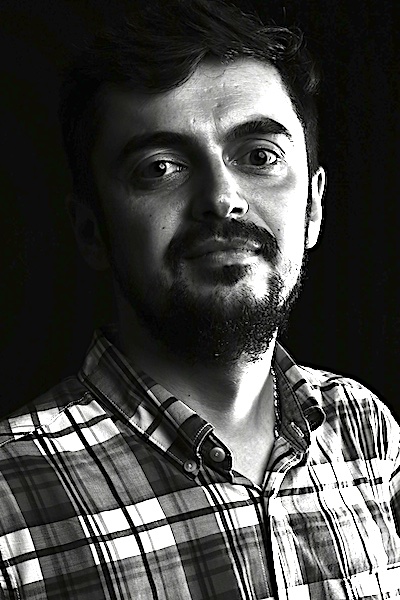
Photo by AlkadabraPhotography.com
Grants for Arts Projects: Literary Arts Applicant Q&A Session
Revisiting the First U.S. Statistical Report about the Arts

The Art of Dr. Martin Luther King, Jr.
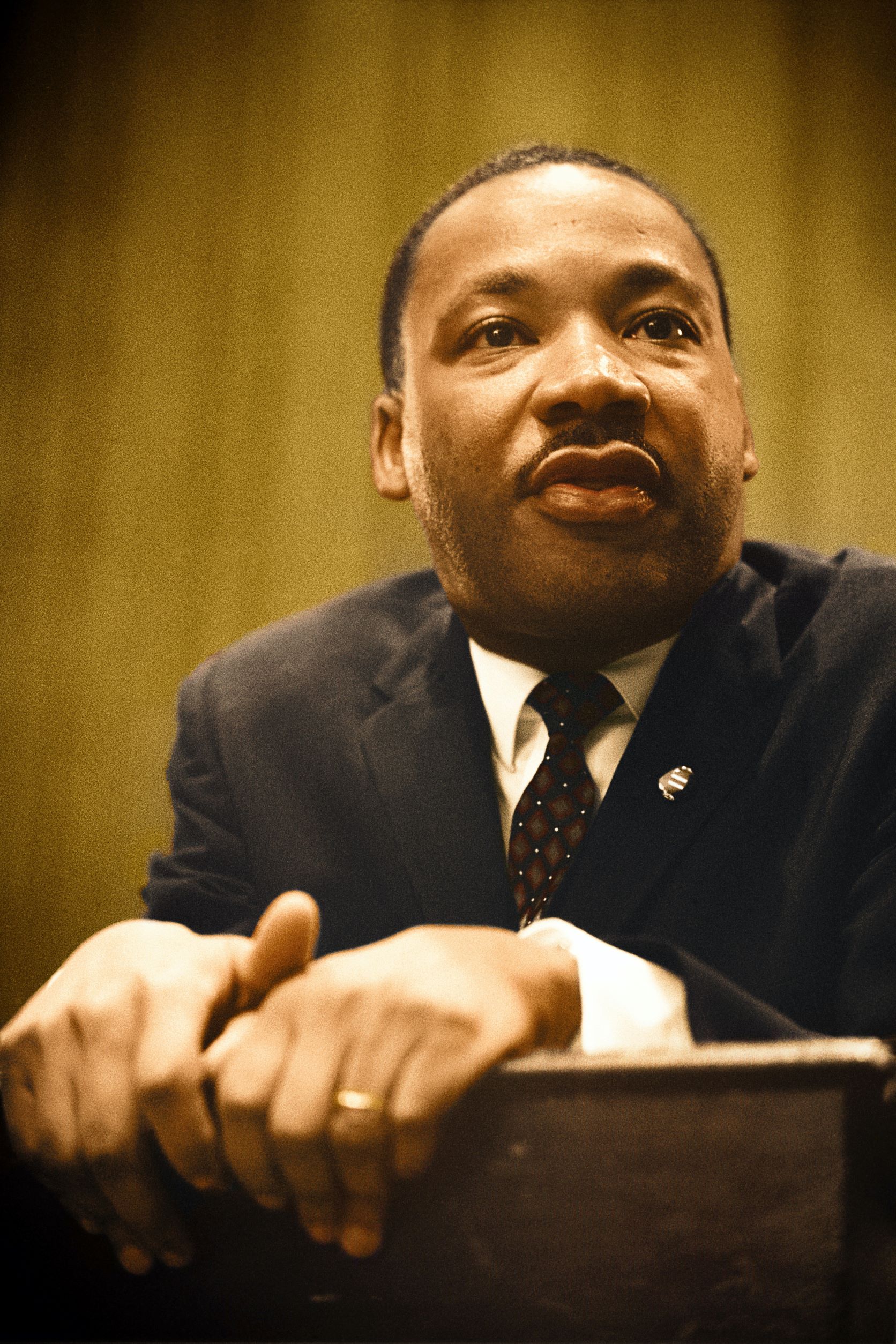
Photo by Unseen Histories on Unsplash
Poems to Ring in the New Year
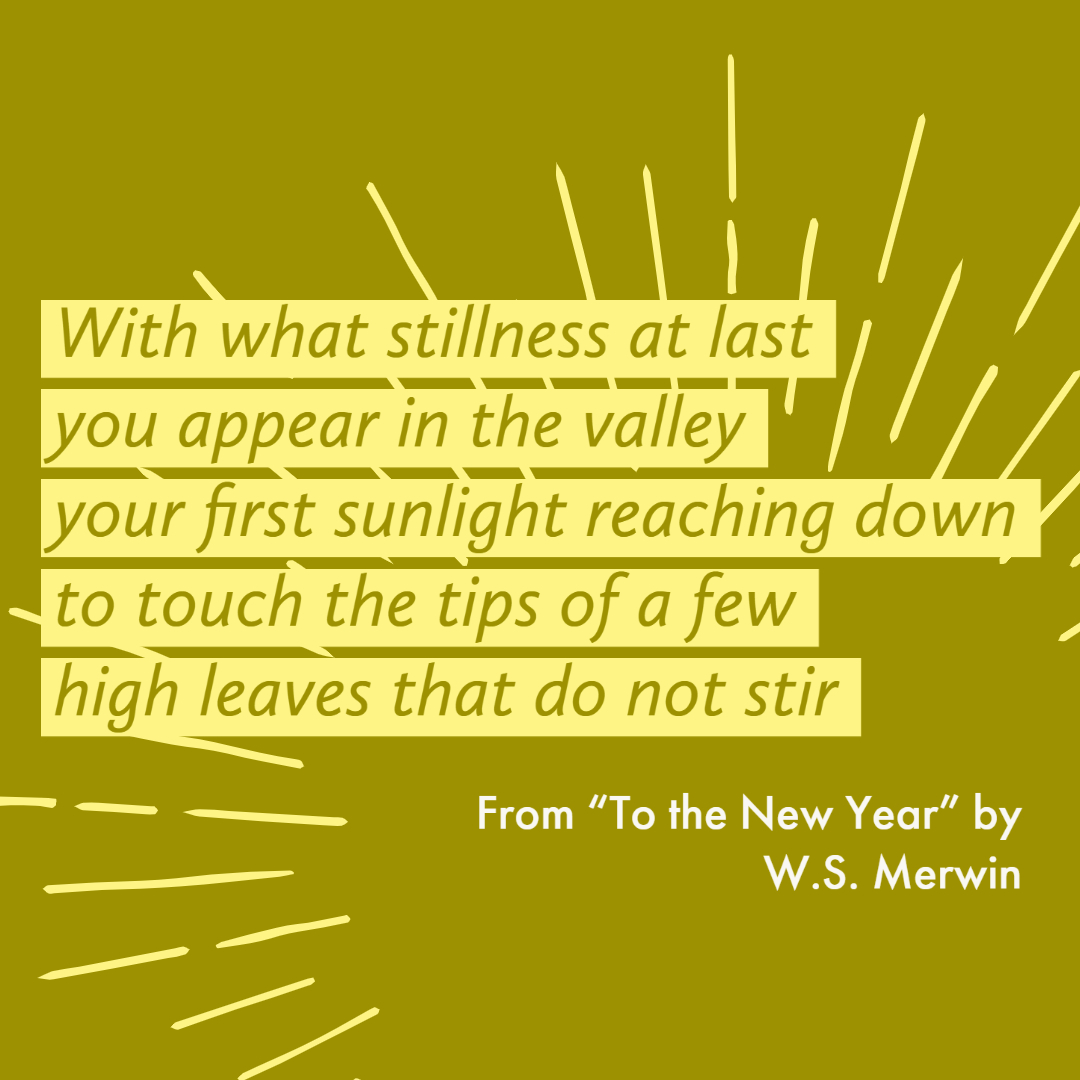
Art at the Intersection: Allison Orr
Music Credit: “NY” written and performed by Kosta T, from the cd Soul Sand, used courtesy of the Free Music Archive.
Jo Reed: From the National Endowment for the Arts, this is Art Works, I’m Josephine Reed.
Today, we’re continuing our ongoing series “Art at the Intersection” “Art at the Intersection” explores the ways the arts are helping to shape, inspire, and communicate the work being done in many areas of society, like in city planning, infrastructure design, public spaces, conservation and so on. Forklift Danceworks in Austin Texas is a great example of art operating at the intersection. Forklift’s Founder and Artistic Director Allison Orr says the company makes dances with people you might not think of as dancers but are movement experts, embodying the jobs that they do. Forklift creates community-based dance performances with workers that show their skilled movements and tell the often unheard stories of the people whose jobs sustain our daily lives. The workers collaborate with the artistic team at Forklift to create the dances and then the workers themselves perform them. The result is a visually stunning, often moving exploration of the unnoticed work and workers that make our lives possible. It opens our eyes to what and who are in front of us. Here’s artistic director Allison Orr to tell us more about Forklift beginning with its many collaborators.
Allison Orr: So in our 20-plus years now of making dances, we have worked with sanitation workers, firefighters, people and their dogs <laughs>, maintenance men, grounds crews, urban forestry crews, aquatics professionals, and lifeguards. And we're presently collaborating with Austin's Watershed Protection Department. So, most of our collaborators have been government staff, so employees of the City of Austin, primarily, or employees of other organizations like campus custodial staff, or cleaning crews, grounds crews, maintenance crews. I think the number one criteria is that we really are working with people who are movement experts whose movement is central to their job. And we work with these collaborators to support them to share their stories and their contributions to our communities on their own terms. So, we, yeah, we're an unconventional dance company that makes performances, dances with people who you think might not be dancers.
Jo Reed: I know your latest project is "The Way of Water" which received funding from the Arts Endowment. So, maybe we can take that as an example and you can walk me through the process from idea phase to fruition.
Allison Orr: Oh, sure, so wow it'd be great to talk about the new project. So, "The Way of Water" is a global project exploring water and the work of people who steward it. And it's been really in our minds-- and when I say "our" I mean me as Artistic Director, and our Associate Artistic Director, Krissy Marty [ph?], along with our leadership team, board, and other collaborators-- we've been talking for years about how we might begin to make work that addresses what's happening on our planet and climate change from the perspective of frontline workers in communities who are directly experiencing increased risk for flooding-in particular, challenges around water, be it too much or too little. So, this project really launched this year with a performance just a couple weeks ago here in Austin, but we began meeting with the Watershed Protection Department and talking to leadership there really in 2019. So, our projects take years to conceive and plan and we like to partner with our collaborating groups, be they community members, neighbors, again, work stafffor years, because it really takes time to build the kind of relationships that we need to do the work that we do. So, the first part of the process really is us as artists thinking about what are we curious about? What are interested to learn? Where is there maybe a problem we've begun to learn about or an issue that could use help in terms of greater public awareness or even just understanding? And when I think about climate change, I know my attention span to even read an article about the topic is pretty limited. S o we began to think about how we could we help people understand what's happening with water in our city and around the world, and it seemed like the place to start is to work with the experts, the people in Watershed Protection, and particularly the employees, who are confronting those challenges really day-to-day in their work.
Jo Reed: And you don't just chat with them and observe them, you often physically do the work with them, so you have a sense of the way that works feels in your own body.
Allison Orr: Yeah, absolutely. So, that's really the second and really most intensive part of our process is job shadowing and relationship building. So, we like to spend, if we have the time, at least a year with the collaborating workgroup, so we can go out on route with them, so we can go out in the field. We can attend safety trainings, we can get signed off to do as much of the work as we can safely do, knowing that we're not going to have a commercial driver's license, we're not going to operate the equipment, but maybe we can ride on the back of the truck. Maybe we can drag brush. Maybe we can clean the pool. Or in this case with Watershed Protection, pick up trash. A lot of the crews that we've been working with are in charge of really maintaining water quality and cleaning, cleaning up after all of us in our city and the trash that inevitably blows from the street into the creeks and ultimately into our what we call a town lake, but it's really the Colorado River. So, as best we can, we do the work, too, so that we can really understand it also from a body level. We can then really work closely with our collaborators to figure out how to show that work in interesting ways. And again, we're making a show that's maybe 45 minutes or an hour long. So, we're taking often what takes hours to do and trying to condense the main ideas into just a few minutes. So, it's important that we know how to do the work, or we've experienced it ourselves.
Jo Reed: So, also, unlike what we think of as a choreographer who makes a dance on someone, you actually make a dance with them and you work together to show what movements best illustrate what it is they do.
Allison Orr: Exactly. And that is the fine art of doing it, and that's why it's important that we've built a trusting relationship with our collaborators because then we're going to ask them to try things that maybe aren't exactly like what they do with the work. So, it takes that trust and that back-and-forth where I'm coming into their world as a novice. I am really guided by and following their expertise, but at some point, we begin to make the show and that's where they have to trust me and us as choreographers at Forklift to represent them well, and to bring our own expertise to the process of like, "How do you shape something to be interesting in terms of space, time, and energy?" So, it is definitely a back and forth. They're going to perform the movement. We don't have trained dancers pretending that they are sanitation workers or firefighters or power linemen. We have the actual experts themselves. So, they have to feel comfortable with it. It has to feel authentic to their experience. And it has to be performable in a limited amount of time because we can't take months and months to rehearse. We often just get days. So, it is a real back-and-forth together, it's a real collaboration to come up with the final product.
Jo Reed: And you've worked with composer Graham Reynolds for many, many years. When does he come into this process?
Allison Orr: Yeah, I was really fortunate to begin collaborating with Graham in 2008 when we premiered "The Trash Project" which was the performance with the Sanitation Department here in Austin, he composed original music that was performed live. And since then, he is the Chief Composer for all of our work, and he's a great composer for dance, because he knows about how to tell stories through music. And our work, even though it's not always directly narrative, it is really guided by the stories of our collaborating partner. And the employees are not dancing to the music. The music is following their movement. So, Graham, we start a good six/seven months out, if not earlier, talking about the feeling of this show, right, and the stories, kind of the tone, the themes of this project. And then we go out into the field and we take videos. We take videos of the crews in action, of the work happening. And then we begin to generate a list of what might be some of the movement pallet and we show those videos to Graham and he really uses those videos to guide him. So, he's not coming up with music on his own in the studio. He, like we are in the field, is really guided by what he sees in front of him in terms of the work. And then helps to showcase that through his music. But so, it's again it's a back-and-forth. Often, he asks questions and interviews the employees themselves, "What music would you like here?" It's not unusual that we get to the show and we've thought of some music and then he tries a certain score or theme to a particular section, and it doesn't work. And he'll go up and he'll talk with the employees about, "Well, what do you think would go here?" And again, he's great at dialog and exchange and that just happened in our recent show where we tried something Monday and Tuesday and we could tell Tuesday night it didn't work and on Wednesday, we tried something different and that was spot-on.
Jo Reed: And the workers, the employees, your collaborators, they also talk about the work as it's being performed. You have unscripted recordings of them speaking about what it is they do as the show is unfolding.
Allison Orr: Exactly, yeah. So, I have a background in ethnography and anthropology. And so, first tools are really what I learn in college and doing field work myself in terms of interviewing people. And as a cultural anthropologist, really trying to again understand the stories and the experience and the voices of the community that I had decided to learn about. So, in many ways, it's a similar process, where again, I don't usually do those recorded interviews early in the process of getting to know a workgroup. It comes later once we've established that trust and they feel more comfortable around us. I don't want people to feel studied or that somehow they're on display. Again, it needs to come from them feeling, again, that this is an opportunity for them to tell their story, which takes time to build that kind of a relationship. So, often we sit in the truck, I'll have a little recording device, maybe we'll be in the breakroom, and there's some standard questions that we ask, and then we really follow the lead of the collaborator. But also, we like to know what do people love about their work? What is it that they want the public to know and what's something that's hard or challenging? Again, what's something they'd like the public to know both in a positive way but also in where they could use a hand, where they could use some help, where the public maybe doesn't seem to quite understand the nature of the job. So, that's often where we start and then we see where they lead us, and those stories end up coming into the performances at certain times to help create a fuller picture of what you're seeing in front of you.
Jo Reed: Allison, I want to know a little bit more about you. What drew you to this work? You mentioned you studied cultural anthropology. Was dance also a part of your life? Tell me the story.
Allison Orr: Yes, well, I could-- I'll give you the abridged version, but yeah, so I grew up dancing. I mean, I was that kid who took tap, jazz, and ballet. You know, where you have the ballet bag that had-- I the place for the tap shoes <laughs>. And then of course I had the little baton. And so, my mom took me to the studio down the street. I didn't go to the ballet school. I mean, I didn't have a pedigree, I would say, but I particularly loved to make shows. So, whenever my grandparents came to town, my sister and I would always put on shows for them. And I would choreograph to my parents record collection, you know, the Beatles and lots of other music from the '60s. And then when I got to high school, you know, in Texas, again, I had flat feet. I was never really a technical dancer, or at least I wasn't going to be a ballet dancer, I knew that. And so, I was on the drill team and that is really it's a group of about 50 young women who perform highly regimented dances often at football halftimes, or other sports events or during the spring competition season. And it was my whole life. And we were very spectacle oriented. Listners might know the Kilgore Rangerettes which are kind of a world-famous drill team out of Kilgore Junior College in East Texas. We were really modeled after that. That's where my Director went. And it was just about, "Could you-- how big and how good could you be?" And we were Top 5 in Texas. So, you know, I like to say we might have lost the football games, but we always won the halftime. <laughs> That was our motto. <laughter> So, when I got to college and I learned that there was modern dance, where you could actually make a dance about something, I was really blown away. And so, I was part of the dance company, even though again I wasn't a technical powerhouse. You know, nobody ever said, "Oh, Allison, you're going to be a professional dancer." I never saw myself in the professional dance world as I understood it. So, I at the same time was studying anthropology. I thought I wanted to go into public health. And when I graduated from college, I actually worked as a social worker because I was bilingual. I had spent summers doing public health work in Latin America. Really doing community-based organizing. So, I kind of had these two threads. This love of dance and movement and really this love of community and storytelling. And it wasn't really until in my late 20s that I began to see that they could come together. And I took a leap of faith and I went to graduate school in choreography at Mill's College. And there I learned that, "Oh, my go-- there is this whole process of community-based dance making." I didn't know it existed. And it really brought my love of community and dance and performance together.
Jo Reed: And Liz Lerman a MacArthur Genius awardee who really expanded the notion of community-based dance with a multitude of collaborations, was really influential in your development of Forklift and the way you thought about this work?
Allison Orr: Absolutely. So, I stumbled upon her work. My choreography teacher taught me about her. Again, I was oblivious to the work of her or Jawole Zollar, or the Bush Women, or Ann Carlson, Marty Pottenger. There's a vast field. Right? Like Marty Pottenger likes to say, "Community-based artmaking is both an ancient and new field of artmaking. And that it's probably the way we did it thousands of years ago in the sense that we didn't necessarily have people that were, quote/unquote, "professionals" and you know, did it all." People were commonly participated, right, in creative expression. So, I began to study the field, learn about the pioneers, the people like Liz Lerman and then I planted myself on her doorstep and was like, "Can I be your intern? Can I be your babysitter? What can I do?" And I ended up being both, interning and babysitter. And really learned and studied from her many life lessons for about a year and then ended up coming back to Austin. And settling back at home and just starting to cobble things together. But she continues to be a champion for our work. Had a huge influence on me and so many people. I'll be always grateful to really the pathway that she and others like her forged for people like me where this kind of artmaking, I think, has finally really because of her and many others' tenacity been given some legitimacy, you know, in the more conventional or traditional dance and funding worlds for art.
Jo Reed: So, you have an idea for Forklift. You return to Austin, and it's one thing to have this great idea, but then you have to make it happen and bring it into this world. So, how did you even know how to begin?
Allison Orr: Well, that is really the question. And I would say again I never had a grand plan. I felt like I was muddling along the entire time. And I mean, one strategy that I continue to employ, you know, is that I bring experts. I surround myself with brilliant people and experts. And early on, certainly Liz, watching her and how she built allies and support for herself. And then really going and using whatever resource came my way. So, whenever there was an offer of a little bit of cash to pay a consultant to help me write a strategic plan, you know, I applied to the city. Whenever there was a workshop on how you build a non-profit board, I showed up. So, I just really immersed myself also in the business of running a non-profit. The first fifteen years, though, more or less, of Forklift-- twelve, maybe twelve/thirteen-- I actually didn't get paid. I was working as an adjunct faculty member at Austin Community College in the Dance Department and did other teaching around town. And fortunately, my husband had a job that could help underwrite our expenses. You know, many people, many artists can't live like that, so I was privileged in that way, certainly. I'm also local, grew up in Austin. So, I had a lot of connections through my family with press and potential donors and supporters. So, that certainly benefited me. But it has just taken along the entire way, really building a support group of people who could advise me, including the board. And you know, that's a whole separate skillset. But I think when I think about artists and what we need, often it's those business skills. Like it's the fundraising and the admin demand what's the hard part. The artmaking is the fun part. You know, it's why we're in it. So, gradually the company grew, and then I would say the big turning point was in 2010, when Krissy Marty called me. And Krissy had been at the Dance Exchange with Liz and Celeste Miller, who is another artist who works in this fashion and was a real mentor to Krissy. Well, so at that time I was directing a project called "200 Two-Steppers" on the steps of the Texas Capitol, and it was a performance to kick off the Fusebox Festival, local arts festival, and it was a challenge. I had 200 two-steppers, it was kind of like high school prom, everybody wanting to dance with somebody else and wanting to do a certain number. It was fun, but there were challenges, and I was just me. And so she showed up the day of the show on our single rehearsal, all of us on the steps of the capitol, and she started fixing things. I looked over, and I was like “oh my god, she actually knows what to do!” And so we began to figure out how to get her onboard writing grants, a lot of grant writing, got actually some money to do creative movement, Krissie has the role educational specialist, and gradually figured out how to get her full time, and by 2015 she was full-time, and I think if you look at our growth you'll see that that has a whole lot to do with it. We're now five full-time, we're going to be six full-time employees next year, and three artists and three fundraiser/administrative people. And, again, it's gradual growth, it's planning, it's budgeting, it's all those things that you learn when you read those books about how to run a nonprofit <laughs>.
Jo Reed: I would imagine in the beginning you had to have confronted so many layers of skepticism from the administrators of, for example, city departments, to the workers themselves.
Allison Orr: Absolutely. I mean we still get skepticism every single-- I mean every single time a project starts, and with every project I have my own personal breakdown that this is going to be the one that falls flat on my face and will be a disaster. Now it's gotten a little easier because we have a track record but we still, because it's a new employee group every time, have to earn trust by doing. What has gotten easier is that I have the kind of proof of concept, right? And I use, particularly in Austin, working with one work group and having that leadership call the next work group leadership and vouching for us, and really that's how I got it. So the sanitation department project was really transformational for us. The Trash Project really changed everything for lots of reasons, but one thing that made it happen is that my lead contact with the fire department happened to be neighbors with the Comms PR person for sanitation, and he walked across the seat street and said to his neighbor “you know, she's not crazy, you should take her call.” And so eventually she did, and after a year of phone calls and emails with her I finally got a meeting and I finally got to pitch, and then that took about six months of her hemming and hawing with her leadership when I finally got to meet with the whole team. So it was close to a two-year process of even just getting my foot in the door to allow me to be in the workspace.
Jo Reed: Well, the project you did at Wake Forest University had to have been particularly gratifying since you went to school there.
Allison Orr: Yes, yes. And, you know, I mean, I was a typical college student in that I had a lot of issues with the institution. I was a protestor. It was great, actually, it was really fun to protest at Wake Forest because there weren't a lot of us doing that, and so you got a lot of attention from especially the faculty when you took an interest in political ideas. But I never expected that I would go back to campus in that way, but we ended up collaborating with over 70 campus employees who worked in grounds, custodial, and maintenance, and construction, and some of those employees were actually there when I was a student. And as a student, you know, you're thinking about yourself. It never occurred to me to think about who was cleaning the dorm or who was repairing the broken sink. And then I got to meet employees, of course, get to know them and build relationships, that was really priceless. I felt like I have a whole different understanding of how the campus works that I didn't get when I was there. So it was a great project, and it was a gift to get to go back to campus and do that.
Jo Reed: I think anyone who has seen a Forklift Dancework knows that they're visually stunning. But you also know that the aesthetics of community dance is often questioned, frequently sight unseen, and I wonder how you discuss the aesthetics of what you do which has importance, it's a piece of creative art.
Allison Orr: That is such a great question. And I remember watching Liz really struggle with this, and that there is a way that people think-- particularly folks who are in the dance world-- how something's supposed to look when it is with people who may not think of themselves as professional performers. So I think what is unique about us at Forklift, and this probably comes a little bit from my background and Krissie's-- you know, Krissie was a twirler for the marching band, and spun fire. She was a third generation twirler <laughs> in the tiny town in Texas. So we both have this real love of spectacle, and of big, and of trying to pull off something impossible. So, I think of it as we are trying to create art and aesthetically match the skill, expertise and just, you know, I don't know, badassness, bassness, hugeness, size, of our collaborating work group. So when you work with the sanitation department, well you've got to have a bunch of trucks, and you've got to show all the great things that they do. Same if you're working with Austin Energy, our public power company here in Austin. You know, they want to show, they want to impress and, you know, Marty Pottenger likes to say everybody wants to do great things. Nobody wants to get up in front of a group of people and have it be mediocre. And so we really bring to bear all the skills of art and theater making. That's why we work with live music. That's why I figured that out, I figured that out that live music makes all the difference. It elevates the aesthetic inherently, right? And then I work with a lighting designer who can do large-scale productions, and so we bring in film generators and all kinds of things to again match the skill and the scale of what the work group is wanting to show off and to demonstrate to the public. When we worked with Austin Energy we had I think, again, over 75 employees participating, but so you've got transmission linemen that work with bucket trucks that go up to 150 feet or more in the air, and you work with substation linemen who work with highly dangerous equipment moving around on Genie lifts and all kinds of things, and then you've got the distribution linemen who go to competition rodeos every year where they do timed events climbing the poles. I mean who <laughs>-- what choreographer, this is like a dream come true, you know? And then you've got the underground network crews that do all this amazing tunnel work. So we had to do this out on the scale of a football field with a massive kind of lighting display, you couldn't not do that. So I think we, again, we try to match what the community is showing us, and we bring everything we've learned as artists to bear to make it look grand and beautiful and intimate, and so I think our aesthetic is a lot about-- gosh, this is a really good question—our aesthetic is definitely about creating awe and wonder.
Jo Reed: You know, here's the thing that's the other side of this, because it really strikes me that as a country we don't value physical work.
Allison Orr: True.
Jo Reed: We rarely acknowledge it, we rarely see it, and Forklift demands that we do, and that we see not only its significance but the beauty that it actually can be and, and the joy, and the necessity that it is.
Allison Orr: Yes. Absolutely. Absolutely. I hear over and over again in terms of workforce development how desperately we need people who are willing to be firefighters and power linemen and sanitation workers and truck drivers. And you know, I have a book actually coming out next year, and I've only been working on it for like nine years, so <laughs> it's been a process. But something I talk about is what we allow to happen by working with people who do not typically get a chance to be up in front of the public showing their work is we get to kind of change the relationship that we have with people who serve us in a sense, right? So the folks who keep my water running or my power on, I never see them, I don't know who they are. I know because I've been out in the field that it takes hundreds of hands to get my power working, but I don't know who they are and who their stories are. And so there's this customer/client relationship that really stays one way. And when we create performance that allows people who are really essential to all of our lives, right, to tell their story, we get to change that dynamic and really use what we know in art is we create an audience, and we create an audience that can do all the things that audience do, you know, appreciate, learn. But we get to adjust I think that relationship even the tiniest bit, and I think that's the powerful thing of using art in this way.
Jo Reed: I mean, well, your 20th anniversary was during the pandemic, but you found a way to celebrate.
Allison Orr: Yeah, absolutely. Well, you know, like all of us we were shocked, and particularly when you're in the arts and you're about gathering people in person what do you do? Well, we began-- we really responded initially by just reaching out to our people, to our collaborators. Krissie and I both thought well now is a good time to check in with some of our friends in sanitation and in power and the campus crews who are having to do all this new kinds of cleaning and food service. So we started just doing some phone calls to say how are you doing, what is it like for you? And then we realized, well, there were some stories here to tell, and that we could be of service, we could be useful, again I like to say how can we make ourselves as artists indispensable? We could be of service to the larger community by helping to continue to share these stories. So we started this project called “On the Job” which actually we're still continuing, where we did telephone interviews that then we edited down and shared with people online, along with photographs, about what people's lives were like and what was it like now to try to clean a dorm building, or box up thousands of meals every day in a campus? And we actually got work groups talking to each other which was really fun. We were able to do a Zoom call that brought together sanitation workers from Barcelona, Rotterdam, Philadelphia, and Austin. And they got to talk about what was common across the world in terms of how there was so much more trash to pick up, what was different about the places that they were working, but oh my god, I actually share something with another worker halfway across the world. So when I get to see workers talking to workers, I think then that is very gratifying for me. So that's how we celebrated.
Jo Reed: Given the amount of time that you spend researching before you begin to choreograph, the amount of money that you need must be fairly substantial. so funding, raising money. And I know you've gotten grants from the NEA, and I wonder what they've enabled you to do?
Allison Orr: Oh, yes. Well, so the first time I got any national funding I think was in 2013 for “PowerUp,” and I remember we got a MAP grant and a Mid America Arts Alliance grant, and we might have gotten our first NEA then. And I remember jumping up and down <laughs> with joy because it had taken a while, and it does it, it takes a lot of tenacity to get national funding in the art scene. I mean, there's not enough, there's a lot of competition and I think you also have to prove your credibility which takes time, and particularly in our field, community-based art making takes documentation, it takes being able to have the resources to gather the video team to come shoot the work. Great, you know, much to, again, totally luck, a remarkable artist named Andy Garrison met me in 2008 and decided to make this beautiful documentary “Trash Dance” about the project with the sanitation department, and that really changed everything in terms of funding. I finally had high-quality documentation of the work that was beautiful that helped tell the story. And then the NEA, I remember we applied to the Our Town, I wrote the first Our Town grant in 2015. It was like a master's thesis. I mean, it took hours and hours. I got lots of help from experts who were familiar with Our Town and could help me learn how to write something like that. And then I remember when we got the award and I screamed out loud in the west main cafeteria, oh my god, it was for a hundred thousand dollars, and I had never seen a number that big coming in with a single grant. So that award really did allow us to scale up, to hire more artists, and importantly hire and commission additional artists and build the team to really respond to what was in front of us. And I do think that NEA Our Town grant in particular gave us visibility that helped us get additional funding from organizations like the Bloomberg Philanthropies which is doing a lot of work now with cities and in climate change. So, you know, it's just tenacity, it's 24 hours, 7 days a week work, the fundraising, but the larger grants that you can get from the federal government and also from foundations really do make a difference in building sustainability. But no, we're fundraising now for 2024, we're always about a year ahead, that's what I like to be, and I'm already freaked out about whatever we've got to raise. So, you know, you just keep at it one day at a time.
Jo Reed: I would ask what’s next for Forklift but I assume your project “The Way of Water” is continuing to unfold.
Allison Orr: Absolutely! I'm actually going to Venice in January, because "The Way of Water" will be a global project that we're working on with Watershed Protection. We have a site here in Austin, but we'll also be working in Miami with Miami-Dade County in their Cultural Arts Facility. Miami being the most endangered city in our country due to climate change and rising sea level. We're talking with leadership in El Paso and I'm also making a proposal to Venice that they also be a site. So, the idea is to bring frontline workers together across the world who are confronting water issues, but also neighborhood leadership and city leadership and activists and of course, artists. So, I'm going to try to make some meetings happen and see if I can begin to lay the groundwork for our partnership there with the Water and Sanitation in place. Because in Venice, the people who manage water are also part of the same group who manages trash. And when the floods before the pandemic in the Fall of 2019 happened in Venice, it was the sanitation workers who were really the unsung heroes of the city moving trash--you know, it was floating everywhere-- it basically kept the city habitable and so there's much love there for the sanitation workers. It's a really interesting situation. So, more to come as that project evolves.
Jo Reed: And I think that is a great place to leave it. Allison, thank you. Thank you for all the incredible work that you do.
Allison Orr: Thank you. You are welcome to come to Austin and come job shadow with us any time, Josephine.
Jo Reed: That was the founder and artistic director of Forklift Danceworks, Allison Orr. To find out more about Forklift and their many collaborations, go to Forklift Danceworks.org. Treat yourself and check out their extraordinary work on youtube. And there will be a link to my two-part podcast with Liz Lerman in the shownotes. -You’ve been listening to Art Works produced at the National Endowment for the Arts. Please follow us wherever you get your podcasts and leave us a rating on Apple—it will help people to find us. Let us know what you think about Art Works—email us at artworkspod@arts.gov
For the National Endowment for the Arts, I'm Josephine Reed. Thanks for listening.

